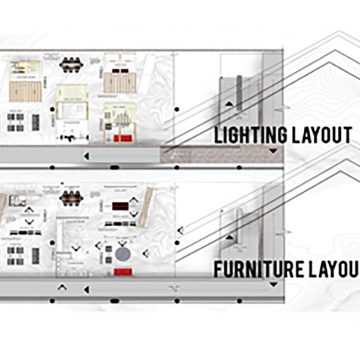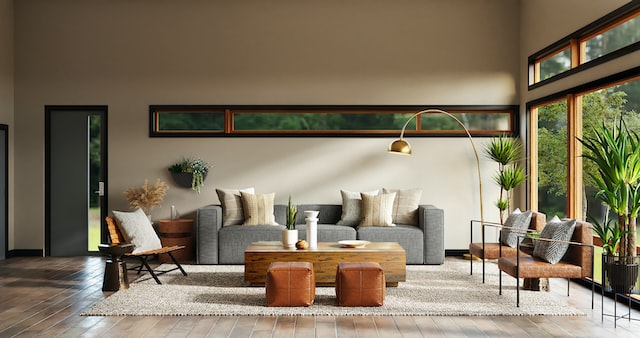The Art of Equilibrium: Exactly How Interior Design and Home Architect Collaborate for Stunning Results
In the world of home design, striking a balance between visual appeals and performance is no tiny feat. This delicate balance is attained via the harmonious collaboration between indoor developers and engineers, each bringing their unique expertise to the table. The result? Areas that are not just aesthetically magnificent but likewise very comfortable. This perfect blend is not constantly very easy to achieve. Remain with us as we explore the ins and outs of this collaborative procedure and its transformative influence on home style.
Comprehending the Core Differences In Between Interior Decoration and Home Design
While both Interior Design and home architecture play essential duties in developing visually pleasing and functional spaces, they are naturally different disciplines. Home style largely concentrates on the structural facets of the home, such as constructing codes, security policies, and the physical construction of the room. It takes care of the 'bones' of the structure, dealing with spatial dimensions, load-bearing walls, and roof covering styles. On the other hand, Interior Design is much more concerned with improving the visual and sensory experience within that framework. It includes picking and organizing furnishings, picking shade plans, and incorporating decorative elements. While they operate in tandem, their roles, obligations, and locations of experience split considerably in the production of a harmonious home atmosphere.
The Harmony In Between Home Architecture and Interior Decoration
The synergy between home style and Interior Design depends on a common vision of layout and the enhancement of functional appearances. When these two areas straighten harmoniously, they can change a living space from normal to extraordinary. This partnership calls for a deeper understanding of each self-control's concepts and the ability to produce a natural, aesthetically pleasing setting.
Unifying Design Vision
Merging the vision for home architecture and Interior Design can create an unified home that is both practical and aesthetically pleasing. The equilibrium starts with an incorporated attitude; engineers and indoor developers team up, each bringing their knowledge. This unison of ideas develops the design vision, a blueprint that guides the project. This common vision is important for consistency throughout the home, guaranteeing a fluid transition from exterior style to indoor rooms. It advertises a synergistic method where architectural elements enhance Interior Design parts and vice versa. The result is a natural living room that mirrors the house owner's lifestyle, preference, and character. Hence, unifying the style vision is vital in blending style and Interior Design for stunning outcomes.
Enhancing Useful Appearances
How does the synergy between home architecture and interior design improve practical aesthetic appeals? Designers lay the foundation with their architectural layout, ensuring that the room is effective and useful. An architect might design a residence with high ceilings and large home windows.
Importance of Cooperation in Creating Balanced Spaces
The partnership between indoor designers and architects is essential in producing well balanced areas. It brings harmony in between design and style, bring to life spaces that are not just aesthetically pleasing yet likewise useful. Checking out successful collective strategies can give insights right into exactly how this harmony can be successfully achieved.
Integrating Design and Style
Equilibrium, a crucial aspect of both interior design and architecture, can only truly be achieved when these two fields job in consistency. This joint process results in a cohesive, balanced design where every component adds and has a function to the overall aesthetic. Integrating layout and design is not just about developing attractive rooms, however about crafting rooms that function effortlessly for their residents.
Successful Joint Methods

Instance Researches: Effective Combination of Style and Design
Analyzing several study, it emerges exactly how the successful integration of Interior Design and architecture can change an area. The Glass House in Connecticut, renowned for its minimalistic style, is one such instance. Architect Philip Johnson and indoor developer Mies van der Rohe teamed up to produce a harmonious equilibrium between the framework and the interior, causing a seamless circulation from the exterior landscape to the internal living quarters. One more prototype is the Fallingwater Home in Pennsylvania. Engineer Frank Lloyd Wright and interior developer Edgar Kaufmann Jr.'s collective initiatives cause a stunningly one-of-a-kind home that mixes with its natural environments. These study underscore the profound influence of a successful style and architecture partnership.

Overcoming Obstacles in Style and Design Collaboration
Regardless of the obvious benefits of an effective collaboration between Interior Design and style, it is not without its challenges. Interaction problems can arise, as both events may make use of various terminologies, additional hints understandings, and approaches in their job. This can result in misconceptions and delays in task completion. Another major obstacle is the balancing act of visual appeals and capability. Designers might prioritize architectural integrity and safety and security, while designers concentrate on comfort and style. The assimilation of these goals can be intricate. Furthermore, spending plan and timeline restrictions often include stress, potentially triggering breaks in the partnership. Consequently, effective communication, common understanding, and compromise are vital to conquer these difficulties and achieve a successful and unified cooperation.

Future Trends: The Evolving Connection Between Home Architects and Inside Designers
As the world of home style remains to advance, so does the relationship in between architects and indoor designers. The pattern leans towards a much more joint and integrated strategy, breaking without conventional duties. Architects are no more only focused on structural honesty, but likewise participate in enhancing aesthetic allure - Winchester architect. Conversely, interior developers are embracing technical elements, affecting total layout and performance. This advancing symbiosis is driven by improvements in technology and the growing demand for areas that are not just visually pleasing but likewise sensible and lasting. The future guarantees an extra natural, innovative, and adaptive method to home style, as designers and developers proceed to blur the lines, fostering a relationship that really symbolizes the art of balance.
Verdict
The art of equilibrium in home style is accomplished through the harmonious cooperation in between interior designers and visit the website engineers. An understanding of each various other's self-controls, efficient communication, and shared vision are crucial in developing aesthetically spectacular, functional, and welcoming areas. Despite obstacles, this collaboration fosters development and advancement in layout. As the connection between home engineers and interior designers progresses, it will proceed to shape future trends, boosting comfort, performance, and personal expression in our space.
While both indoor layout and home design play essential functions in creating visually pleasing and functional areas, they are naturally different techniques.The synergy between home style and interior image source style exists in a shared vision of style and the improvement of functional aesthetics.Merging the vision for home style and interior style can develop a harmonious living area that is both useful and aesthetically pleasing. Therefore, unifying the layout vision is essential in blending style and indoor design for sensational outcomes.
How does the synergy between home design and indoor layout enhance practical appearances? (Winchester architect)